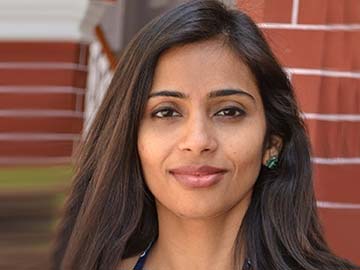New Delhi, Dec 13: Deploring the arrest of Deputy Consul General in New York, Foreign Secretary Sujatha Singh today summoned US Ambassador Nancy Powell to convey India's "shock" over "absolutely unacceptable" treatment meted out to the senior Indian diplomat.
Reacting strongly to Deputy Consul General Devyani Khobragade being arrested and handcuffed in public on visa fraud charges, the Foreign Secretary summoned Powell to South Block to lodge strong protest and convey India's displeasure over the arrest of its diplomat.
According to sources, Singh told Powell that the treatment meted out to the senior diplomat was "totally unacceptable" and she was entitled to the courtesies under various multilateral conventions dealing with diplomatic fraternity posted in foreign countries.
In a major diplomatic embarrassment, Khobragade, 39, was taken into custody on a street in New York as she was dropping her daughter to school at 9 AM yesterday and handcuffed in public on visa fraud charges before being released on a USD 250,000 bond after pleading not guilty in court.
"We are shocked and appalled at the manner in which she has been humiliated by the US authorities. We have taken it up forcefully with the US government through our embassy in Washington. We are also reiterating, in no uncertain terms, to US embassy here that this kind of treatment to one of our diplomats is absolutely unacceptable," Spokesperson in the Ministry of External Affairs Syed Akabaruddin said here.
He also said the ministry was working to resolve this matter at the earliest and if there were issues of legal nature they will be resolved separately, however, this sort of behaviour was "totally unacceptable".
"Nothing entails the humiliation of a young woman with two small children publicly. A person who has been a diplomat sent there to represent her country. We will take issue of legal nature separately but there is no justification or acceptability of what has happened to the young diplomat who had gone to drop her children in a school," he said.
This is the third case involving a senior official of the New York Indian Consulate in three years.
In June 2011, a former housekeeper had sued India's then Consul General in New York Prabhu Dayal accusing him of intimidating her into a year of forced labour.In February 2012, Indian maid Shanti Gurung won a case against Neena Malhotra, who served as a Press and Culture Counselor at the New York Consulate from 2006-2009.





Comments
Add new comment